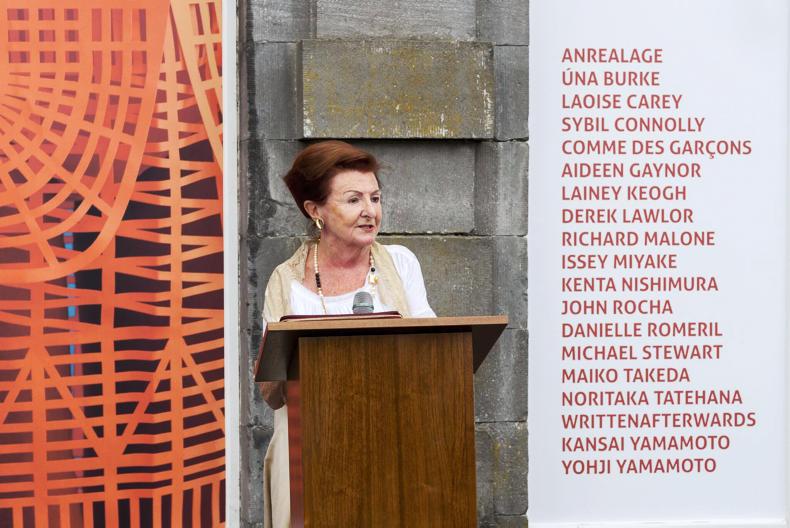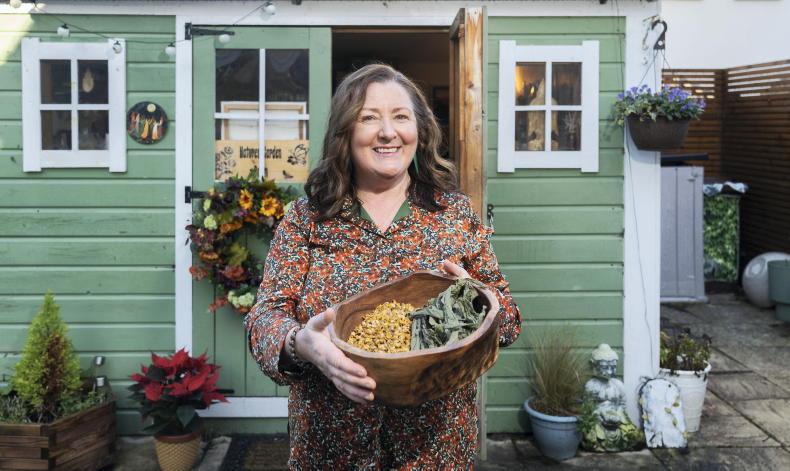Penneys is one of the great pillars of Irish society. It is right up there with tea, Taytos, the GAA and having the craic. But in all seriousness, Penneys revolutionised Irish fashion in making trendy clothes accessible to ordinary people and this has ingrained its significance in our nation.
Since its first store opened in Dublin in the 1960s, Penneys – trading internationally as Primark – has grown exponentially both home and abroad. One woman who oversaw much of this expansion during her 37 years with the company is former director Breege O’Donoghue.
When Breege joined Primark in 1979, originally to set up the HR department, it had 24 stores. By the time she retired in 2016, Primark was operating over 300 stores in 11 countries. But what does Primark mean to the woman who will always be synonymous with its success?
In Primark, responsibility had no gender. Really, for me being on the board there was a sense of thrill, belonging. There was a sense of freedom, it was truly wonderful
“I think it would be hard to distinguish me from Primark and Primark from me,” reflects Breege. “That is what Primark meant to me, absolutely the love of my life. It still is and I continue to be involved of course. I had wonderful colleagues, there was nothing that we couldn’t do. There was no such thing as ‘no’ in the English language to us.”
Breege was one of the so-called “gang of four” who were instrumental in the growth of Primark, and she was also the only woman on the board. Her final title was group director of new markets and business development. The 70-something-year-old has seen huge advances for women in the workplace over the years, but for her, gender was never an issue at the company.
“I could tell you that today over 60% of those in senior positions in Primark head office are women. In Primark, responsibility had no gender. Really, for me being on the board there was a sense of thrill, belonging. There was a sense of freedom, it was truly wonderful, so all I did was try to be at least as good as the others on the board,” says Breege.
“I was at no disadvantage, probably an advantage. I think also that Primark always supported me in being involved in outside activities, provided it was public service. So I was on a number of boards, that of course is a great support for one’s development and independence of thought.”
Always growing
Breege grew up on a farm in Boston on the border of Clare and Galway. She had what she describes as an idyllic childhood, but remembers there was a lot of hard work to be done too.
“I rounded up my siblings and we milked the goats before we went to school. We brought water from the well, helped to make hay, picked potatoes, snared rabbits and walked miles to and from school through the fields. There was no extravagance, money was always put aside for the rainy day.”
Having sat her Leaving Cert in Gort, there were efforts that could have scuppered Breege becoming one of the most successful Irish business women we know today. The reverend mother of the convent wanted Breege to become a nun, but instead Breege went on to work in the Great Southern Hotel group, where she stayed for 17 years before being invited to join Primark.
IMAGE
While with the Great Southern, Breege completed a three-year training programme in Switzerland and Germany. She credits living abroad to opening her mind to cultural diversity and also giving her a love of languages. Breege can conduct her business in Spanish, French and German.
The ethos of continued education and development has always been a huge feature of Breege’s life.
“I would like to have gone to university after secondary school, but that was not an option. I did the Leaving Cert and I had an ambition to go to university, but I did not do it at that stage. I did it later, I graduated from University College Dublin (UCD) in 1972, having done a night degree in commerce.”
Always going
Although Breege retired from Penneys two years ago, she is still an ambassador for the company and works in a vast number of roles with different organisations, including chairing the Design and Craft Council of Ireland (DCCoI), where she promotes Irish design, fashion and craft through many streams. She also mentors young entrepreneurs on how to run a business.
However, Breege is also a huge believer in having spare time for personal activities. She likes to cycle, read, do yoga, go to the gym and has an interest in sport.
Breege is a strikingly practical person and a hard worker, a duo of traits that lend well to accomplishment. But being a good business person, Irish Country Living wants to know, are you just born with it?
“I think like everything else, you have to work at it,” she responds. “You need to have confidence in the future, you need to be able to generate ideas, you need to focus on the customer and you need to focus on the competition. Every business will have a crisis, being able to act decisively in a crisis is crucial.”
The evidence of Breege’s business success is dotted around the world in various clothing stores and although she watched her beloved Primark go global over the years, her feet always remained firmly on the ground.
For more information on the work of the Design and Craft Council of Ireland, see www.dccoi.ie
Read more
Prescription for success
Meet Paypal vice-president Lousie Phelan
Read more
A prescription for success at Meaghers Pharmacy
PayPal Vice President Louise Phelan on rural roots, risk and women in business
Penneys is one of the great pillars of Irish society. It is right up there with tea, Taytos, the GAA and having the craic. But in all seriousness, Penneys revolutionised Irish fashion in making trendy clothes accessible to ordinary people and this has ingrained its significance in our nation.
Since its first store opened in Dublin in the 1960s, Penneys – trading internationally as Primark – has grown exponentially both home and abroad. One woman who oversaw much of this expansion during her 37 years with the company is former director Breege O’Donoghue.
When Breege joined Primark in 1979, originally to set up the HR department, it had 24 stores. By the time she retired in 2016, Primark was operating over 300 stores in 11 countries. But what does Primark mean to the woman who will always be synonymous with its success?
In Primark, responsibility had no gender. Really, for me being on the board there was a sense of thrill, belonging. There was a sense of freedom, it was truly wonderful
“I think it would be hard to distinguish me from Primark and Primark from me,” reflects Breege. “That is what Primark meant to me, absolutely the love of my life. It still is and I continue to be involved of course. I had wonderful colleagues, there was nothing that we couldn’t do. There was no such thing as ‘no’ in the English language to us.”
Breege was one of the so-called “gang of four” who were instrumental in the growth of Primark, and she was also the only woman on the board. Her final title was group director of new markets and business development. The 70-something-year-old has seen huge advances for women in the workplace over the years, but for her, gender was never an issue at the company.
“I could tell you that today over 60% of those in senior positions in Primark head office are women. In Primark, responsibility had no gender. Really, for me being on the board there was a sense of thrill, belonging. There was a sense of freedom, it was truly wonderful, so all I did was try to be at least as good as the others on the board,” says Breege.
“I was at no disadvantage, probably an advantage. I think also that Primark always supported me in being involved in outside activities, provided it was public service. So I was on a number of boards, that of course is a great support for one’s development and independence of thought.”
Always growing
Breege grew up on a farm in Boston on the border of Clare and Galway. She had what she describes as an idyllic childhood, but remembers there was a lot of hard work to be done too.
“I rounded up my siblings and we milked the goats before we went to school. We brought water from the well, helped to make hay, picked potatoes, snared rabbits and walked miles to and from school through the fields. There was no extravagance, money was always put aside for the rainy day.”
Having sat her Leaving Cert in Gort, there were efforts that could have scuppered Breege becoming one of the most successful Irish business women we know today. The reverend mother of the convent wanted Breege to become a nun, but instead Breege went on to work in the Great Southern Hotel group, where she stayed for 17 years before being invited to join Primark.
IMAGE
While with the Great Southern, Breege completed a three-year training programme in Switzerland and Germany. She credits living abroad to opening her mind to cultural diversity and also giving her a love of languages. Breege can conduct her business in Spanish, French and German.
The ethos of continued education and development has always been a huge feature of Breege’s life.
“I would like to have gone to university after secondary school, but that was not an option. I did the Leaving Cert and I had an ambition to go to university, but I did not do it at that stage. I did it later, I graduated from University College Dublin (UCD) in 1972, having done a night degree in commerce.”
Always going
Although Breege retired from Penneys two years ago, she is still an ambassador for the company and works in a vast number of roles with different organisations, including chairing the Design and Craft Council of Ireland (DCCoI), where she promotes Irish design, fashion and craft through many streams. She also mentors young entrepreneurs on how to run a business.
However, Breege is also a huge believer in having spare time for personal activities. She likes to cycle, read, do yoga, go to the gym and has an interest in sport.
Breege is a strikingly practical person and a hard worker, a duo of traits that lend well to accomplishment. But being a good business person, Irish Country Living wants to know, are you just born with it?
“I think like everything else, you have to work at it,” she responds. “You need to have confidence in the future, you need to be able to generate ideas, you need to focus on the customer and you need to focus on the competition. Every business will have a crisis, being able to act decisively in a crisis is crucial.”
The evidence of Breege’s business success is dotted around the world in various clothing stores and although she watched her beloved Primark go global over the years, her feet always remained firmly on the ground.
For more information on the work of the Design and Craft Council of Ireland, see www.dccoi.ie
Read more
Prescription for success
Meet Paypal vice-president Lousie Phelan
Read more
A prescription for success at Meaghers Pharmacy
PayPal Vice President Louise Phelan on rural roots, risk and women in business











SHARING OPTIONS